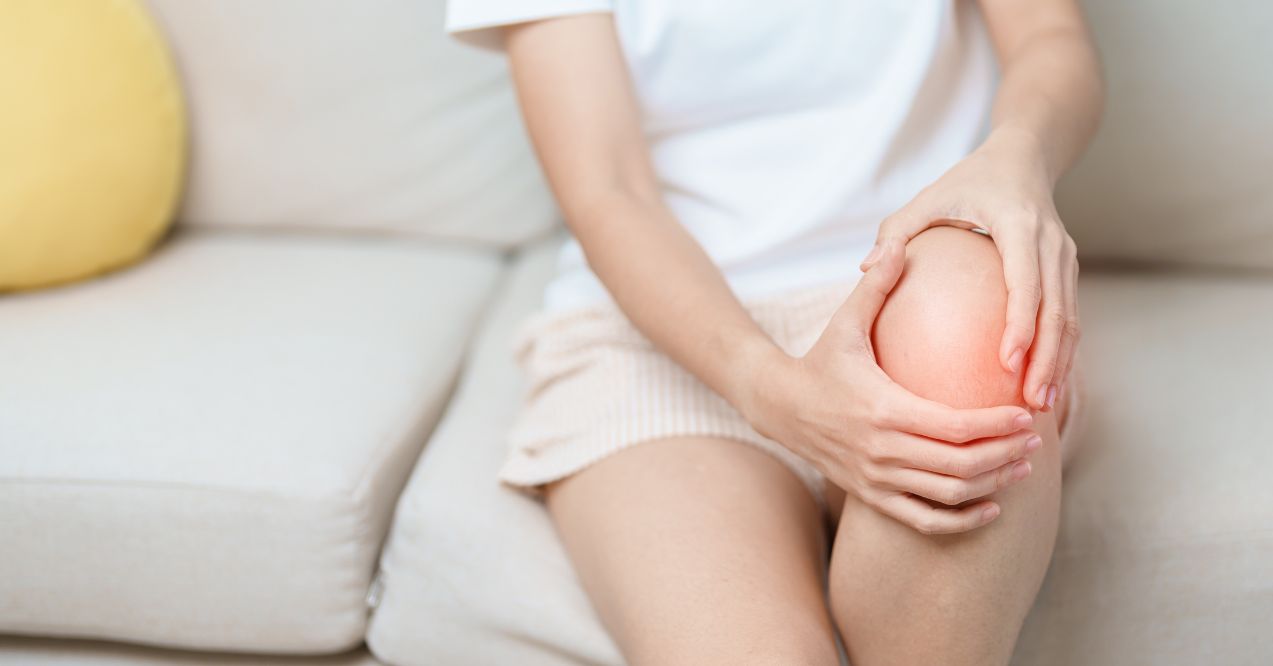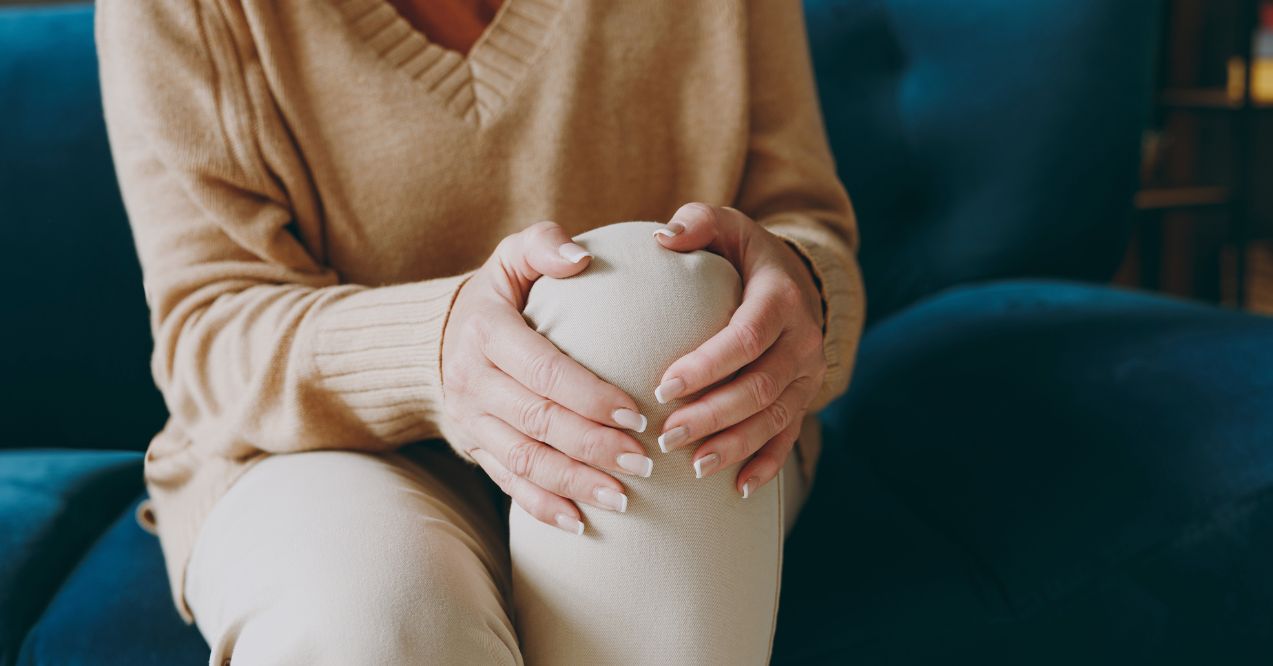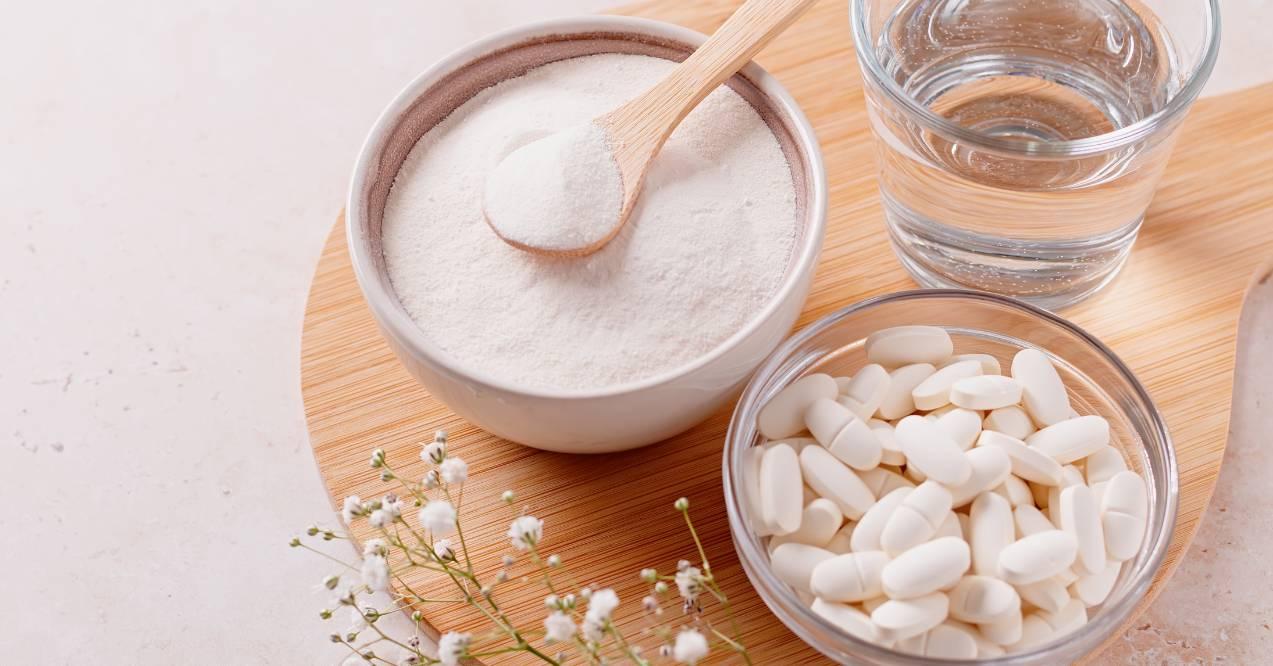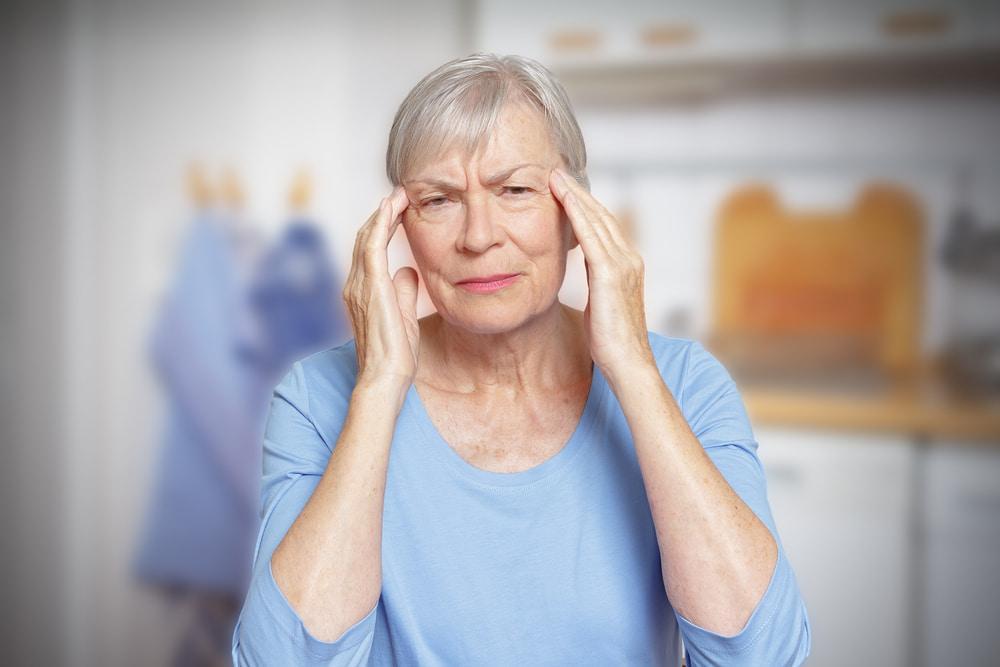Experiencing Itchy Ears? Could Be a Sign of Menopause
Experiencing itchy ears? Learn how hormonal changes, particularly declining estrogen, cause this surprising symptom of menopause.
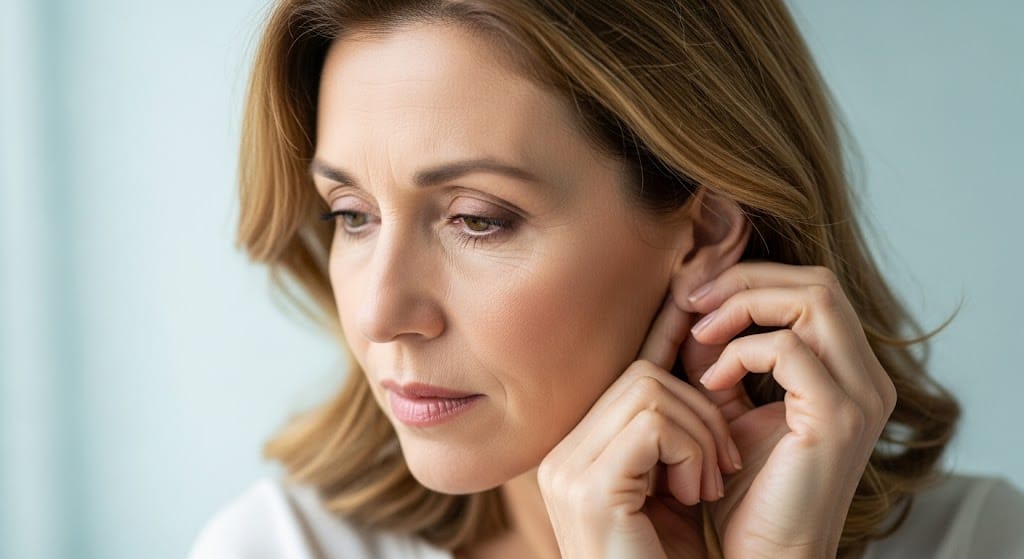

Many women experiencing menopause focus on hot flashes and mood changes, but itchy ears might also signal hormonal shifts. This unexpected symptom catches many by surprise, leading them to wonder if menopause itchy ears are actually connected.
The hormonal changes occurring during menopause impact every part of your body, including the delicate skin inside your ears. As estrogen levels decline, various tissues lose moisture and elasticity, potentially causing uncomfortable sensations in unexpected places.
What Causes Itchy Ears During Menopause?
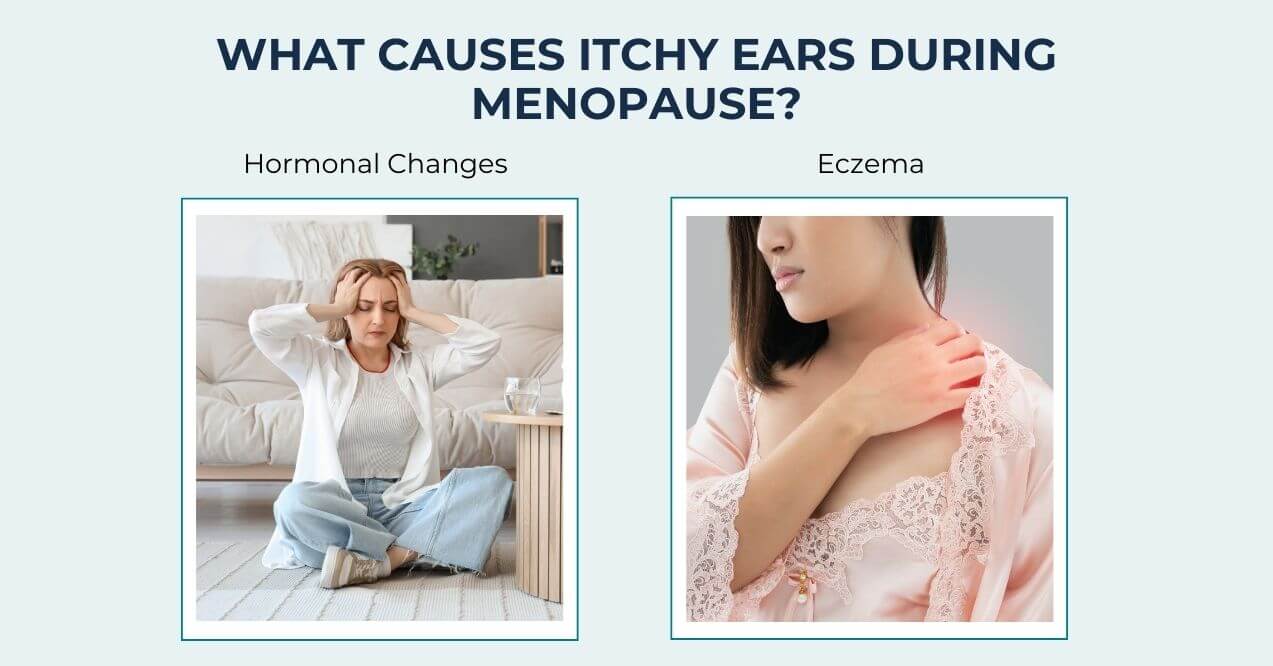
The primary culprit behind menopause itchy ears is declining estrogen levels. This hormone plays a vital role in maintaining skin moisture and health throughout your body. When estrogen drops, your skin produces less natural oil and collagen, leading to dryness and irritation in sensitive areas like your ears.
Hormonal Changes
Fluctuating hormone levels affect oil production in your ear canal. The skin inside your ears becomes drier and more prone to irritation. This dryness often triggers an intense itching sensation that may worsen at night or during stress. Your body’s natural protective barriers weaken, making the ear canal more susceptible to irritation from everyday activities like washing your hair or wearing earrings.
Eczema
Some women develop eczema in their ears during menopause. This inflammatory skin condition causes red, itchy patches that may flake or feel rough. Hormonal changes can trigger eczema in women who never experienced it before, or worsen existing conditions. The warm, enclosed environment of the ear canal creates ideal conditions for eczema flare-ups, especially when combined with reduced moisture levels from declining estrogen.
How Does Menopause Affect the Ears?
Menopause brings widespread changes to your skin’s structure and function. The ears, with their thin, sensitive skin, often show these changes through increased dryness and sensitivity. As hormone levels shift, the skin throughout your body undergoes significant transformations that may manifest as itching, irritation, or discomfort in areas you wouldn’t expect.
The delicate nature of ear skin makes it particularly vulnerable to menopause-related changes. Many women notice their ears feeling different during this transition – perhaps more sensitive to temperature changes or prone to irritation from products they’ve used for years. These changes stem from fundamental shifts in how your skin maintains itself:
Decreased Collagen and Elasticity
- Estrogen helps produce collagen, which keeps skin firm and elastic. Lower estrogen means less collagen production, causing ear skin to become thinner and more fragile.
Increased Sensitivity and Allergies
- Hormonal changes may heighten your skin’s reactivity. Products or materials that never bothered you before might suddenly cause irritation or allergic reactions in your ears.
Are Itchy Ears a Sign of Menopause?
While not every woman experiences this symptom, persistent ear itching during your 40s or 50s may indeed indicate hormonal changes. Are itchy ears a sign of menopause when combined with other symptoms like irregular periods, hot flashes, or mood changes? The answer is often yes.
However, ear itching alone doesn’t confirm menopause. Various conditions may cause similar symptoms, including allergies, infections, or excessive earwax. The key lies in recognizing patterns and accompanying symptoms. If your itchy ears coincide with other menopausal changes, hormones likely play a role. Women often notice ear itching worsens during times of stress or hormonal fluctuation, providing another clue to the menopause connection.
Pay attention to when the itching occurs and what makes it better or worse. Keeping track of these patterns helps you and your healthcare provider determine whether hormones contribute to your ear discomfort. The connection between hormones and managing other symptoms like brain fog becomes clearer when you see how menopause affects your entire body.
Managing Itchy Ears During Menopause
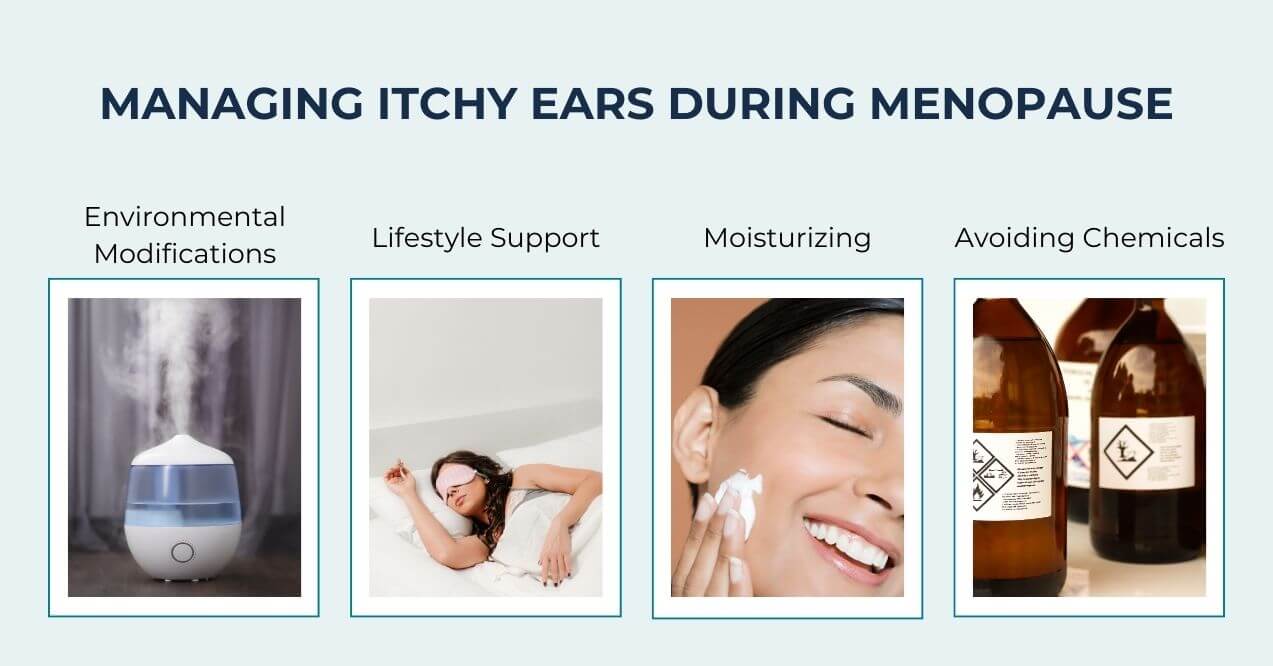
Simple lifestyle adjustments often provide significant comfort without requiring extensive treatments. The goal is reducing irritation while supporting your skin’s natural healing processes.
Start by examining your daily routines. Small changes in how you care for your ears can make a substantial difference. Avoid inserting cotton swabs or other objects into your ears, as this can worsen irritation and damage delicate skin. Instead, focus on gentle external care and creating conditions that support healthy ear skin.
Environmental Modifications
Environmental factors also play a role. Using a humidifier in your bedroom may help maintain moisture levels, potentially reducing nighttime itching. Some women find that managing stress through relaxation techniques also decreases the intensity of ear itching.
Lifestyle Support
Regular exercise and adequate sleep support overall hormonal balance, which may indirectly improve ear comfort. Consistency matters more than perfection when implementing these changes.
Moisturizing
Proper moisturization can significantly reduce ear itching during menopause. Apply a small amount of natural oil like coconut or jojoba to the outer ear area. These oils provide deep hydration without causing irritation. Gently massage the oil around the ear opening, avoiding deep insertion into the canal.
For best results, apply moisturizer after showering when skin is slightly damp. Choose fragrance-free, hypoallergenic products specifically designed for sensitive skin to minimize potential reactions.
Avoiding Chemicals
Many personal care products contain ingredients that may irritate sensitive menopausal skin. Switch to gentle, sulfate-free shampoos and avoid hair products near your ears. Choose mild, unscented soaps for cleansing. Skip alcohol-based products like certain toners or perfumes near the ear area. When swimming, protect your ears with earplugs to prevent chlorine exposure. These simple swaps can dramatically reduce irritation and allow your ear skin to heal naturally.
Can Supplements Help with Itchy Ears and Menopause?
Some women find that comprehensive menopause supplements offer convenient support during this transition. These formulations often combine multiple beneficial ingredients targeting various symptoms simultaneously.
For those seeking holistic support, supplements for menopause contain Red Clover and Hops with 8-prenylnaringenin (8-PN) that may help manage hormonal fluctuations. Additional ingredients like Angelica gigas and Sage potentially support overall skin health and comfort, which could indirectly ease dryness-related symptoms throughout the body.
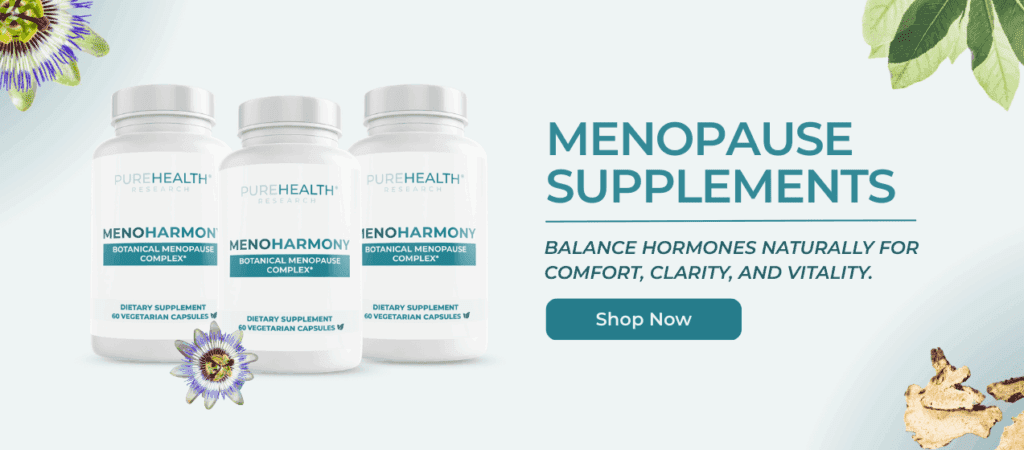
While supplements may be helpful additions to your wellness routine, they work best alongside healthy lifestyle practices. Staying hydrated, eating a balanced diet rich in nutrients, and managing stress all contribute to better skin health during menopause. Consider supplements as one tool in your comprehensive approach to managing menopausal changes.
In Conclusion
Itchy ears during menopause result from hormonal changes affecting skin moisture and health. This symptom, while less common than hot flashes, impacts many women and deserves attention. Declining estrogen levels reduce natural oil production and collagen, leading to dry, sensitive ear skin.
Managing this symptom involves gentle care practices, including proper moisturization and avoiding harsh chemicals. Natural oils and fragrance-free products can provide relief without causing additional irritation. Environmental modifications like using humidifiers may also help.
Itchy ears and menopause symptoms vary among individuals. What works for one woman may differ for another. Track your symptoms, identify patterns, and work with healthcare providers when needed. With patience and the right approach, you can find effective relief and maintain comfort throughout your menopausal journey.
Early menopause can cause unexpected symptoms including burning tongue, metallic taste, electric shock sensations, and tingling extremities. Women may experience changes in body odor, altered spatial awareness, or sudden allergies. These unusual symptoms result from hormonal fluctuations affecting various body systems.
Menopause-related itching typically affects dry, sensitive areas including the scalp, arms, legs, and genital region. The itching often feels deep and persistent, worsening at night. Unlike regular dry skin, menopausal itching may not respond well to standard moisturizers without hormonal support.
Low estrogen causes vaginal dryness, irregular periods, hot flashes, night sweats, and mood changes. Physical signs include thinning hair, dry skin, decreased breast fullness, and bone density loss. Cognitive symptoms may include difficulty concentrating and memory issues during this hormonal transition.
Sign up for our Healthy Living newsletter!
Advertisement. This site offers health, wellness, fitness and nutritional information and is designed for educational purposes only. You should not rely on this information as a substitute for, nor does it replace, professional medical advice, diagnosis, or treatment. If you have any concerns or questions about your health, you should always consult with a physician or other health-care professional. Do not disregard, avoid or delay obtaining medical or health related advice from your health-care professional because of something you may have read on this site. The use of any information provided on this site is solely at your own risk.



